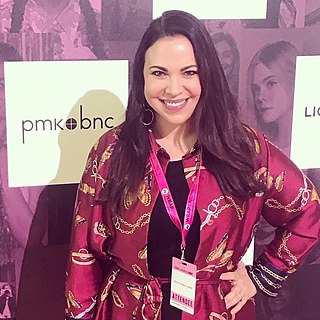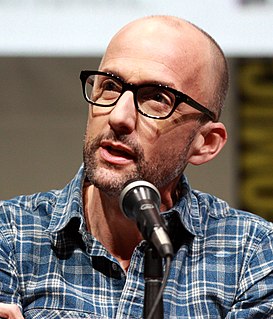A Quote by Seymour Papert
This frenzy about cyberporn indicates some deeper fear of adults as they see kids become more independent and learn things they never learned. I think those fears also reflect a failure to communicate. Parents should be able to say to their kids: "There is stuff out there that we don't look at, and if you find yourself looking at it or someone approaching you about it, then let's talk about it."
Related Quotes
Advertisers have become scared of talking about certain issues because they don't want to upset an American family. I think it's a shame because there are things we want to talk to our kids about. So to be able to talk about LGBT issues on our shows. To be able to to talk about sex on our shows. Now if you're like, "I'm going to do an episode talking to kids about sex," on a network that's hard to do!
One of the first things I think young people, especially nowadays, should learn is how to see for yourself and listen for yourself and think for yourself. Then you can come to an intelligent decision for yourself. If you form the habit of going by what you hear others say about someone, or going by what others think about someone, instead of searching that thing out for yourself and seeing for yourself, you will be walking west when you think you're going east, and you will be walking east when you think you're going west.
Before we have children, we think most of the parents sitting in sacrament meeting ought to “do something about their kids.” Once we have kids, we think everyone ought to be a lot more understanding about what we’re trying to survive during the meeting. And once our kids are grown, we think, “I never let my kids get away with that.” We really all need to chill out.
There are just certain things you can't talk about with kids. I just totally do not believe in this sort of Bart Simpson character who infects so much of our literature and film and TV stuff nowadays, these know-it-all kids who seem to understand the hypocrisy of the adult world so thoroughly and can talk about it with such articulateness. That's bunk. Kids are kids; they're innocents, they really are. For a long time, no matter what they see, no matter what they're exposed to, they can't get it until they have developed enough.
Kids know they can't make it alone, yet at the same time, built into each one of us, is a survival ethic. It says, "Nobody cares and you have to look out for yourself and if you don't, you'll die." These two things work against each other. I think most kids are very frightened of their parents, and that's what all fairy tales reflect: Parents will fail you and you'll be left on your own. But, of course, everything comes out right in the end and the parents take you back.
I spent a lot of time in boarding school. This is something I will never do to my kids. I think if you're having kids, then you have to take care of them; otherwise, what's the point? There are many things that parents say are good for the kids, but the truth is they say that because it is good for the parents.
Certainly it's great to be able to talk to your friends about something. They might mention a film, and you can find all about it, and you don't have to wait months until you can find a book that might cover the subject and keep it in your head. You can have that kind of immediacy. But there's also something about it, where all the knowledge seems kind of fleeting. All the stuff I learn about in that way, I can be interested in for a day and then it's gone.
The fears that assault us are mostly simple anxieties about social skills, about intimacy, about likeableness, or about performance. We need not give emotional food or charge to these fears or become attached to them. We don’t even have to shame ourselves for having these fears. Simply ask your fears, “What are you trying to teach me?” Some say that FEAR is merely an acronym for “False Evidence Appearing Real.” From Everything Belongs, p. 143








































